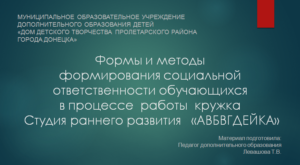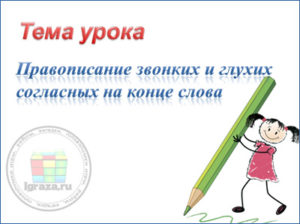primary-schooler
IBOU "Secondary General Education School No17"
d. Novomoskovsk, Tula region
Subject:Gods in Greek Mythology
Goals:
Remember the names of the gods in Greek mythology of the archaic and classical periods.
- to remember mythological plots associated with the gods, to see how these plots and images of the gods were reflected in art.
Tasks:
Educational:Formation in students of a holistic historical idea of the geographical position and natural conditions of Ancient Greece; teach to build causal relationships between climatic conditions and occupations of the population;
Developing:develop the analytical abilities of students, the ability to highlight the main thing and generalize, make reasoned conclusions; develop skills for solving problem-cognitive and creative tasks; promote the development of cognitive interest of students;
Educational:to cultivate respect for the history and traditions of other peoples; on the positive images of the heroes of Ancient Greece to bring up diligence, ingenuity and desire to help people.
Equipment:computer, interactive whiteboard, layout of the ship "Argo", drawings - diagrams "How the ancient Greeks understood the world", attributes of mythological gods and heroes, table "Olympic Gods", emblems, children's drawings of Greek gods, audio recording "Sirtaki", costumes - chitons.
Class progress:
1. The ceremony.
The children stand at the desks, near the ship "Argo" are "argonauts": Captain Jason, the helmsman Linkey, the assistant of Captain Tithius.
The mermaid comes out and says: “The sea is worried once, the sea is worried twice, the sea is worried three times, the Greek figure revive!”
Children read poems:
- Listen, it's not the wind.
The tops of the trunks sway.
Millennials past
The call comes.
And here's the miracle trier.
Holy trembling,
You're Pontus gleaming gray.
After the Argonauts you swim!
There is such a country in the middle of wine – the colored sea.
Crete is beautiful, rich, washed by waves.
There are ninety cities in it, and people have no account.
-" Great Greece of brave men,
Divine women, seductive nymphs.
Athens, the flame of the Olympics, gods, heroes, sacred antiquity!
The greatness of the past world, its living depth!
Our ship "Argo" will be led by wonderful Argonauts. Captain Jason outlined a plan for the journey and chose the following route, during which we should remember the names of the gods in Greek mythology, recall the mythological plots associated with them, see how the names and images of the gods were reflected in the art of ancient Greece.
So our ship, the Argo, is sailing. On the sea you can hear the splash of waves, the cries of seagulls. The ship sails, and cute Greek women dance the Greek dance "Sirtaki".
2. Repeating the periodization of Greek mythology.
- Greek mythology is divided into several periods. Name the first two. (Archaic and classical)
- The deities of the archaic period do not yet have human form. These are the elements, the forces of nature. The gods of the classical period are anthropomorphic.
- What do they call them? (Olympic gods)
- What is a myth? (Myth is a poetic reflection of the ideas of the ancient Greeks about the world, nature, and human relations.)
- Myths are legends about gods and heroes. They arose when people were powerless before nature, and deified everything that they could not understand and explain.
- Let's turn our attention to this drawing, "How the ancient Greeks imagined the world," and name the gods of the archaic period.
The earth is Gaia, the sky is Uranus, the water is Ocean, the abyss is Tartarus, the sun is Helios, the moon is Selena, the night is Nyukta, the dawn is Eos.
- All the forces of nature lived in harmony until Uranus' son Kronos rebelled against his father and overthrew him. Cronus was very afraid that his children would do the same to him. And then he said, [Children say] Swallowing babies. Only Zeus was saved by his mother. She deceived Kronos by giving him a stone instead of Zeus. Zeus grew up, defeated his father. He forced him to return the swallowed brothers and sisters, and he became the main god - Thunderer.
- This was the time of the Olympian gods.
- Name the names of the Olympian gods.
- The two brothers of Zeus received from him the kingdom:
Poseidon is the sea, Hades is the abyss.
There are many inhabitants in the sea and abyss. Let us remember their names: (reading names, working with the board)

- Remember each of them, and tell them about them.
3. Find out the Attribute.
- Each god had a characteristic thing by which he was recognized, with which he was depicted by sculptors and artists.

4. Wing phrases.
- Let us recall the “winged phrases” from Greek mythology.
What rivers flow in the underworld of Hades? (Acheront, Styx, Leta)
- What is the meaning of the river Leta? To go into oblivion – to be forgotten.
What is the name of the dog that guarded the underworld of Hades? (Cerberus is the overseer)
- Tell me what attributes belonged to Zeus and make a catch phrase with them. (Thunder and lightning – “thunder and lightning” – to speak angry, irritated, reproaching, denouncing or threatening someone.)
5. "The sea is worried." Children depict different gods by the type of this game: Athena Pallas, Aphrodite, Poseidon, Zeus, etc.
6. Acquaintance with works of art on a mythological plot.
- The gods punished those who did not respect them. Let's remember the legend of Narcissus. (Children show Narcissus scene and echo.)
- The gods not only punished people, but also taught them.
- What happened to King Midas? The legend of King Midas.
- If the gods love someone, they will love them forever. This is what happened to Pygmalion and the statue of Galatea. (scene)
7. “Kaleidoscope” of arts, recognition of Greek gods in works of painting, sculpture.
- The Greeks knew a lot about their gods. Everyone has their own biography, history. Let's guess puzzles about the gods and find their image among the pictures on the board, combining the letters of the puzzles with the number of images.
A) “I am the god of sun and light. He was born on the floating island of Delos on the same day as his sister Artemis. I love art. In memory of my unhappy love, I wear a laurel wreath on my head.” (Apollo)
B) “I was born to a dying Semela, and was also doomed to die in the fire. But I was saved by the green ivy that covered me from the fire. When I grew up, I began to walk with a cheerful crowd of satyrs and nymphs in a wreath of grapes, and in my hands ...
I am the son of Zeus and Maya, the messenger of the gods. I have winged sandals. I guard the ways, protect the travelers in life, but also accompany them on their last journey – to the dark kingdom of Hades. (Hermes)
D) “I am the son of Zeus and Hera, the god of fire, the blacksmith god. Born on Olympus weak, weak and lame. When I was thrown down from Olympus, I fell into the sea and there I was raised by the daughters of the holy Elder Nereus. I have a very good friend. His name is Prometheus, the god Hephaestus.

8. Working with a mythological crossword puzzle. That is the end of our voyage. Captain Jason has prepared for you an interesting mythological crossword puzzle. Try to guess it.
1. The name of a young man turned into a deer by Artemis.
2. A goddess who keeps laws.
3. The name of a king who could turn everything into gold.
4. Son of the sun god Helios.
5. God of war.

Answers: 1. Acteon; 2. Themis; 3. Midas; 4. Phaeton; 5. Ares.
- Which goddess is named vertically? (Athena)
9. The legend of the goddess Athena Pallas.
- Remember who Athena punished in a weaving contest?
10. That's the end of our journey. Dear Little Mermaid says goodbye to us: “The sea worries once, the sea worries twice, the sea worries three, the Greek figure freeze!”
- Tanya, Katya, Yana, Sasha, Zhenya ... come alive, you will turn into students of the 2nd grade.
Conclusion: We repeated everything about the gods of the Archaic and Classical periods, watched mythological scenes, listened to music. The next period in Greek mythology will be the heroic period, where we learn about the heroes, their battles with anger, with the forces of fear and hatred, their victories and defeats.
11. At the end of the lesson, a review of literature on ancient Greek mythology, art, viewing paintings, sculptures, vessels, vases in the Greek style.
Download the full lesson summary



